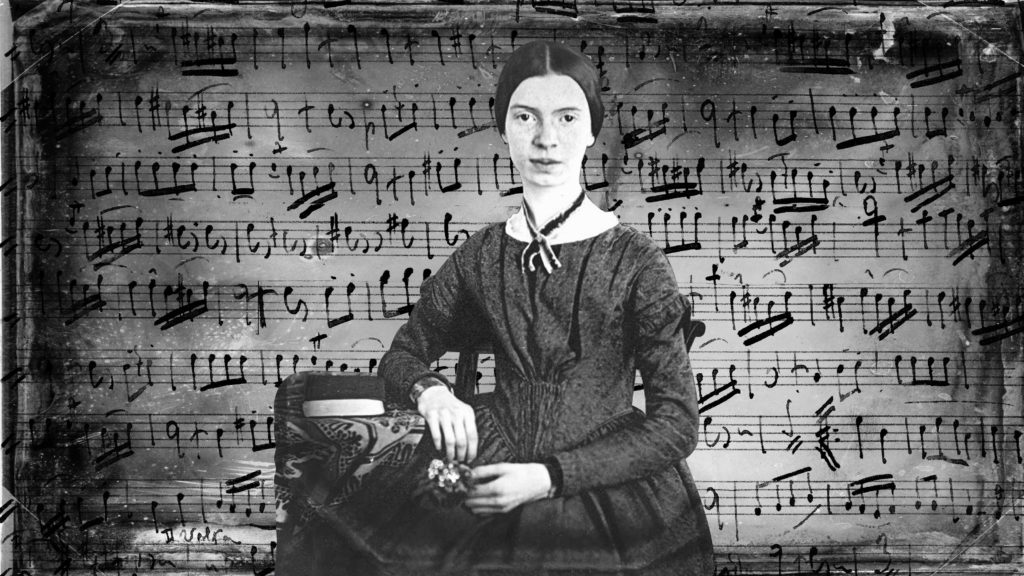
Perhaps the original queen of social distance techniques, Emily Dickinson was a prolific poet, especially during her own period of self-quarantine.
The musical nature of her approach to poetry, which is documented here, has led to her body of work being frequently used by musicians as a libretto to their choral works and song cycles.
It’s fitting that one of the best-known settings of her poetry was composed by Aaron Copland. Copland is often referred to as the “Dean of American Composers,” and Dickinson is a primary example of a 19th Century American poet. Copland set twelve of Dickinson’s poems in his longest set for solo voice. The list of friends to whom he dedicated each movement is a who’s who of composition at the time, with names like Elliot Carter, Alberto Ginastera, Lukas Foss and Irving Fine.
When composing Chanting To Paradise, Libby Larsen paid particular attention to the letter “i.” In the same way that Dickinson plays with every possible pronunciation of the letter in Bind me – I can still sing, Larsen plays with the duration of the sound. She allowed the instructions of the poem – “bind me,” “stay,” etc. to dictate how the music itself should move.
As set with optimism by Craig Hella Johnson, the answer to Dickinson’s question “Will there really be a morning?” is a resounding yes.
Another take on that same poem comes from Ricky Ian Gordon, a composer who splits his time between the musical theatre and opera world. Gordon set eleven of Dickinson’s poems in a collection he called Too few the mornings be.
Eric Whitacre’s first shot at composing was his setting of Go Lovely Rose, by Edmund Waller. The piece was so successful that he created a set of three flower songs, including With a Lily In Your Hand by Frederico Garcia, and I hide myself by Emily Dickinson.
Tel Aviv based singer Efrat Ben Zur composed an album of pieces based on Dickinson’s poetry in 2012. She refers to the set of pieces as a “sorcerous journey.”
Carla Bruni’s compositions in her album No Promises have been compared to singer/songwriter Jack Johnson, with their swinging guitar lines. The album includes poems by Dickinson, as well as William Butler Yeats, Walter de la Mare, and Dorothy Parker.
Read more about the music found in Emily Dickinson’s poetry. And tune in to 91Classical all month for music inspired by poems and poets.